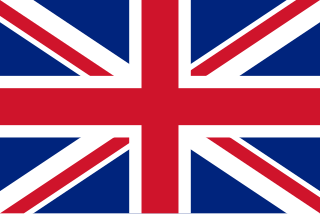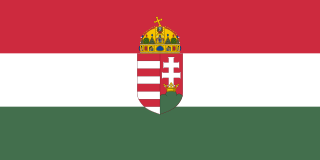
The 1900 Summer Olympics, today officially known as the Games of the II Olympiad and also known as Paris 1900, were an international multi-sport event that took place in Paris, France, from 14 May to 28 October 1900. No opening or closing ceremonies were held.
At the 1904 Summer Olympics, nine swimming events were contested. The 1904 swimming competition was the only time in Olympic history that racing distances were measured in yards. The competition was held September 4–6, 1904. There was a total of 32 participants from 5 countries competing. The 10 events at the swimming competitions were held at a man-made lake that was used for life-saving exhibitions by the coast guard.

At the 1900 Summer Olympics, three croquet events were contested. Seven men and three women participated. The doubles competition was scheduled first, though it is unclear whether the French pair that won had any competition. The one-ball singles was played the next week, followed by two-ball singles the week after. France, which supplied all 10 competitors, therefore won all the medals.

At the 1900 Summer Olympics one gymnastics event for men was contested. The competition was held on Sunday, 29 July 1900, and on Monday, 30 July 1900. There were 135 competitors from 8 nations. The top 18 places were taken by French gymnasts, of which there were more than 100. The event was won by Gustave Sandras, with Noël Bas finishing second and Lucien Démanet third. The highest-placing foreign gymnast was Jules Ducret of Switzerland, in a tie for 19th place.

At the 1900 Summer Olympics, a polo tournament was contested. Matches were held on 28 May, 31 May, and 2 June. Five teams competed. Four of these teams were of mixed nationality, with British and French athletes competing on three teams. There was no playoff for third place.

At the 1900 Summer Olympics in Paris, four events in rowing were contested, marking the introduction of the sport to the Olympic program. At the inaugural 1896 Games, the rowing competition was cancelled due to strong winds. The 1900 regatta was held on the Seine between the Courbevoie Bridge and the Asnières Bridge on 25 and 26 August. The length of the regatta course was 1,750 metres. Two finals were held in the coxed four competition, with both finals being considered Olympic championships. Thus, there were a total of five rowing championships awarded.
A water polo tournament was held on the Seine on 11 and 12 August 1900 as part of the 1900 Summer Olympics. Eight teams from four countries, all European, entered the event, although only seven ended up playing. The Osborne Swimming Club of Manchester, England, which has been listed with two rosters that are nearly entirely different, became the first Olympic water polo champions by defeating the Brussels Swimming and Water Polo Club of Belgium. Third place went to the two French-based semi-finalists, Libellule de Paris and Pupilles de Neptune de Lille, the latter of whom entered two teams, but merged them together after the first round.
At the 1908 Summer Olympics in London, six swimming events were contested. These were the first Olympic Games in which a 100-metre pool had been especially constructed. Previous Olympic events were swum in open water. Only men participated in the swimming events. The competitions were held from Monday, July 13, 1908, to Saturday, July 25, 1908.

The men's pole vault was a track & field athletics event at the 1900 Summer Olympics in Paris. It was held on July 15, 1900. Eight athletes from five nations competed in the pole vault.

France was the host of the 1900 Summer Olympics in Paris. France was one of many nations that had competed in the 1896 Summer Olympics in Greece and had returned to compete at the 1900 Games.

The United Kingdom of Great Britain and Ireland competed as Great Britain at the 1900 Summer Olympics in Paris, France. It was the second appearance of Britain after having participated in the inaugural 1896 Games. In Olympic competition, the nation has always shortened its official name to Great Britain rather than the United Kingdom seen elsewhere.

Hungary competed at the 1900 Summer Olympics in Paris, France. Austrian and Hungarian results at early Olympic Games are generally kept separate despite the union of the two nations as Austria-Hungary at the time.

Hungary first participated at the Olympic Games at the inaugural 1896 Games, and has sent athletes to compete in most Summer Olympic Games and every Winter Olympic Games since then. The nation was not invited to the 1920 Games for its role in World War I, and was part of the Soviet-led boycott of the 1984 Summer Olympics.

Italy has sent athletes to most of the modern Olympic Games held since 1896, outside of not having officially participated in the 1904 Summer Olympics.

The modern Olympic Games were founded by French historian Pierre de Coubertin. France has competed in every edition, with the possible exception of the 1904 Games.

Water polo has been part of the Summer Olympics program since the second games, in 1900. A women's water polo tournament was introduced for the 2000 Summer Olympics. Hungary has been the most successful country in men's tournament, while the United States is the only team to win multiple times at the women's tournament since its introduction. Italy was the first to win both the men's and women's water polo tournaments.

The men's 200 metre freestyle event at the 1992 Summer Olympics took place on 26 July at the Piscines Bernat Picornell in Barcelona, Spain. There were 55 competitors from 39 nations, with each nation having up to two swimmers. The event was won by Yevgeny Sadovyi of the Unified Team; it was the first victory in the men's 200 metre freestyle by an athlete from the former Soviet Union since Moscow 1980. Anders Holmertz of Sweden repeated as the silver medalist, becoming the first man to win multiple medals in the event. Antti Kasvio earned a bronze medal in Finland's debut in the event.

Otto Wahle was an Austrian-American swimmer who took part in two Summer Olympic Games and won a total of three medals. Wahle coached the men's US swim team at the 1912 Olympics, and the men's US water polo team at the 1920 and 1924 Olympics.

The men's 300 metre free rifle prone event was one of five free rifle events of the competitions in the Shooting at the 1900 Summer Olympics events in Paris. It was held from August 3 to August 5, 1900. 30 shooters from 6 nations competed, with five shooters per team. Medals were given for individual high scores in each of the three positions, overall individual high scores, and the scores of the five shooters were summed to give a team score. Achille Paroche of France won the gold medal in the prone event, with Anders Peter Nielsen of Denmark taking silver and Ole Østmo bronze.
















